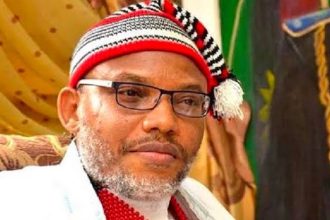Sensationalism vs. Facts: The Case of Andrew Exposes Systemic Issues in Nigerian Society and it’s policing
The case of Andrew has once again highlighted a troubling aspect of Nigerian society: the tendency to gravitate towards sensationalism rather than focusing on the facts. Many Nigerians are more inclined to embrace dramatic and often misleading narratives instead of critically examining the underlying issues.

This is evident in the way terms like “organ harvester” are being irresponsibly thrown around in Andrew’s case. It is crucial to understand that this is not the first instance where a killer has attempted to conceal their crimes by dismembering and disposing of their victims. Such heinous acts have occurred in Western countries for years, yet they do not give rise to such outlandish and distracting narratives.
These misleading stories and sensational headlines detract from the opportunity to address the fundamental issues that allow such crimes to occur. The basic truth in this situation is that systemic corruption within the Nigerian police force significantly enabled Andrew’s criminal activities. This individual was able to commit his gruesome acts and subsequently attempt to hide them by dismembering his victims and disposing of their bodies. Alarmingly, crucial evidence, such as the remains of one of his victims, is still missing, underscoring the inefficiency and corruption within the investigative process.
Nigerians must shift towards critical thinking and away from perpetuating distracting narratives that prevent meaningful lessons from being learned. For instance, when actor Junior Pope ventured into the high seas without a life jacket or knowing how to swim, leading to an accident that claimed four lives, the public’s reaction was to blame supernatural forces rather than scrutinizing the lack of safety precautions. Similarly, when an Access Bank manager and his entire family perished in a crash during bad weather, the conversation did not shift towards blaming witchcraft. Instead, it should have focused on the importance of adhering to safety protocols and improving infrastructure.
There is a broader issue at play here: Nigerians often overlook the failures of their government to enforce effective laws and institutions. In the UK, for example, drink driving is universally recognized as dangerous and is strictly regulated and penalized. However, in Nigeria, such awareness and enforcement are lacking. It is only when a tragic accident occurs due to drunk driving that people start to blame external factors, rather than addressing the root cause of the problem.
Andrew harbored his malevolent tendencies while living in the UK but could not act on them due to stringent law enforcement and a robust legal system. Upon returning to Nigeria, however, he found an environment that, due to systemic corruption and ineffective policing, enabled his criminal behavior. This highlights a significant issue: crimes that would result in severe penalties in more regulated environments might paradoxically lead to positions of power and influence in Nigeria. For instance, a crime that that landed a former vice senate president in the UK in prison for ten years could, if that happened in Nigeria, that would have result in him being rewarded with a state governorship position, with the plight of their victims being disregarded.
In conclusion, the case of Andrew should serve as a wake-up call for Nigeria to address the systemic issues within its law enforcement and judicial systems. It is imperative for Nigerians to engage in critical thinking, hold their government accountable, and demand the enforcement of laws and regulations that protect citizens and prevent such atrocities from occurring. By doing so, the nation can move towards a more just and equitable society, where sensationalism is replaced by a commitment to truth and justice.
I intend to write more on these topics to further explore and highlight these critical issues.
@bensamuell



